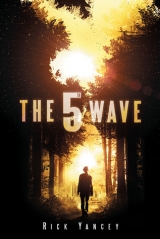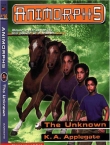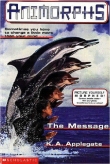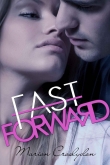
Текст книги "The 5th Wave"
Автор книги: Rick Yancey
Жанры:
Подростковая литература
,сообщить о нарушении
Текущая страница: 8 (всего у книги 27 страниц)



CALL ME ZOMBIE.
Head, hands, feet, back, stomach, legs, arms, chest—everything hurts. Even blinking hurts. So I try not to move and I try not to think too much about the pain. I try not to think too much period. I’ve seen enough of the plague over the past three months to know what’s coming: total system meltdown, starting with your brain. The Red Death turns your brain to mashed potatoes before your other organs liquefy. You don’t know where you are, who you are, what you are. You become a zombie, the walking dead—if you had the strength to walk, which you don’t.
I’m dying. I know that. Seventeen years old and the party’s over.
Short party.
Six months ago my biggest worries were passing AP Chemistry and finding a summer job that paid enough for me to finish rebuilding the engine on my ’69 Corvette. And when the mothership first appeared, sure, that took up some of my thoughts, but after a while it faded to a distant fourth. I watched the news like everybody else and spent way too much time sharing funny YouTube videos about it, but I never thought it would affect me personally. Seeing all the demonstrations and marches and riots on TV leading up to the first attack was like watching a movie or news footage from a foreign country. It didn’t seem like any of it was happening to me.
Dying isn’t so different from that. You don’t feel like it’s going to happen to you…until it happens to you.
I know I’m dying. Nobody has to tell me.
Chris, the guy who shared this tent with me before I got sick, tells me anyway: “Dude, I think you’re dying,” he says, squatting outside the tent’s opening, his eyes wide and unblinking above the filthy rag that he presses against his nose.
Chris has come by to check up on me. He’s about ten years older, and I think he looks at me like a little brother. Or maybe he’s come to see if I’m still alive; he’s in charge of disposal for this part of the camp. The fires burn day and night. By day the refugee camp ringing Wright-Patterson swims in a dense, choking fog. At night the firelight turns the smoke a deep crimson, like the air itself is bleeding.
I ignore his remark and ask him what he’s heard from Wright-Patterson. The base has been on full lockdown since the tent city sprang up after the attack on the coasts. No one allowed in or out. They’re trying to contain the Red Death, that’s what they tell us. Occasionally some well-armed soldiers well-wrapped in hazmat suits roll out the main gates with water and rations, tell us everything will be okay, and then hightail it back inside, leaving us to fend for ourselves. We need medicine. They tell us there’s no cure for the plague. We need sanitation. They give us shovels to dig a trench. We need information. What the hell is going on? They tell us they don’t know.
“They don’t know anything,” Chris says to me. He’s on the thin side, balding, an accountant before the attacks made accounting obsolete. “Nobody knows anything. Just a bunch of rumors that everybody treats like news.” He cuts his eyes at me, then looks away. Like looking at me hurts. “You want to hear the latest?”
Not really. “Sure.” To keep him there. I’ve only known the guy for a month, but he’s the only guy left who I know. I lie here on this old camping bed with a sliver of sky for a view. Vague, people-shaped forms drift by in the smoke, like figures out of a horror movie, and sometimes I can hear screaming or crying, but I haven’t spoken to another person in days.
“The plague isn’t theirs, it’s ours,” Chris says. “Escaped from some top-secret government facility after the power failed.”
I cough. He flinches, but he doesn’t leave. He waits for the fit to subside. Somewhere along the way he lost one of the lenses to his glasses. His left eye is stuck in a perpetual squint. He rocks from foot to foot in the muddy ground. He wants to leave; he doesn’t want to leave. I know the feeling.
“Wouldn’t that be ironic?” I gasp. I can taste blood.
He shrugs. Irony? There is no irony anymore. Or maybe there’s just so much of it that you can’t call it irony. “It’s not ours. Think about it. The first two attacks drive the survivors inland to take shelter in camps just like this one. That concentrates the population, creating the perfect breeding ground for the virus. Millions of pounds of fresh meat all conveniently located in one spot. It’s genius.”
“Gotta hand it to ’em,” I say, trying to be ironic. I don’t want him to leave, but I also don’t want him to talk. He has a habit of going off on rants, one of those guys who has an opinion about everything. But something happens when every person you meet dies within days of your meeting them: You start being a lot less picky about who you hang out with. You can overlook a lot of flaws. And you let go of a lot of personal hang-ups, like the big lie that having your insides turn to soup doesn’t scare the living shit out of you.
“They know how we think,” he says.
“How the hell do you know what they know?” I’m getting pissed. I’m not sure why. Maybe I’m jealous. We shared the tent, same water, same food, and I’m the one who’s dying. What makes him so special?
“I don’t,” he answers quickly. “The only thing I know is I don’t know anything anymore.”
In the distance, a gun fires. Chris barely reacts. Gunfire is pretty common in the camp. Potshots at birds. Warning shots at the gangs coming for your stash. Some shots signal a suicide, a person in the final stages who decides to show the plague who’s boss. When I first came to the camp, I heard a story about a mom who took out her three kids and then did herself rather than face the Fourth Horseman. I couldn’t decide whether she was brave or stupid. And then I stopped worrying about it. Who cares what she was when what she is now is dead?
He doesn’t have much more to say, so he says it quickly to get the hell away. Like a lot of the uninfected, Chris has a bad case of the twitchies, always waiting for the other shoe to drop. Scratchy throat—from the smoke or…? Headache—from lack of sleep or hunger or…? It’s the moment you’re passed the ball and out of the corner of your eye you see the two-hundred-and-fifty-pound linebacker bearing down at full speed—only the moment never ends.
“I’ll come back tomorrow,” he says. “You need anything?”
“Water.” Though I can’t keep it down.
“You got it, dude.”
He stands up. All I can see now is his mud-stained pants and mud-caked boots. I don’t know how I know, but I know it’s the last I’ll see of Chris. He won’t come back, or if he does, I won’t realize it. We don’t say good-bye. Nobody says good-bye anymore. The word has taken on a whole new meaning since the Big Green Eye in the Sky showed up.
I watch the smoke swirl in his passing. Then I pull out the silver chain from beneath the blanket. I run my thumb over the smooth surface of the heart-shaped locket, holding it close to my eyes in the fading light. The clasp broke on the night I yanked it free from her neck, but I managed to fix it using a pair of fingernail clippers.
I look toward the tent opening and see her standing there, and I know it isn’t really her, it’s the virus showing her to me, because she’s wearing the same locket I’m holding in my hand. The bug has been showing me all kinds of things. Things I want to see and things I don’t. The little girl in the opening is both.
Bubby, why did you leave me?
I open my mouth. I taste blood. “Go away.”
Her image begins to shimmer. I rub my eyes, and my knuckles come away wet with blood.
You ran away. Bubby, why did you run?
And then the smoke pulls her apart, splinters her, smashes her body into nothing. I call out to her. Crueler than seeing her is the not seeing her. I’m clutching the silver chain so tight that the links cut into my palm.
Reaching for her. Running from her.
Reaching. Running.
Outside the tent, the red smoke of funeral pyres. Inside, the red fog of plague.
You’re the lucky one, I tell Sissy. You left before things got really messy.
Gunfire erupts in the distance. Only this time it’s not the sporadic pop-pop of some desperate refugee firing at shadows, but big guns that go off with an eardrum-thumping puh-DOOM. The high-pitched screeching of tracer fire. The rapid reports of automatic weapons.
Wright-Patterson is under attack.
Part of me is relieved. It’s like a release, the final cracking open of the storm after the long wait. The other part of me, the one that still thinks I might survive the plague, is ready to wet his pants. Too weak to move off the cot and too scared to do it even if I wasn’t. I close my eyes and whisper a prayer for the men and women of Wright-Patterson to waste an invader or two for me and Sissy. But mostly for Sissy.
Explosions now. Big explosions. Explosions that make the ground tremble, that vibrate against your skin, that press hard against your temples and push on your chest and squeeze. It sounds as if the world is being ripped apart, which in a way it is.
The little tent is choking with smoke, and the opening glows like a triangular eye, a burning ember of bright hellish red. This is it, I’m thinking. I’m not going to die of the plague after all. I’m going to live long enough to be wasted by an actual alien invader. A better way to go, quicker anyway. Trying to put a positive spin on my impending demise.
A gunshot rings out. Very close, judging by the sound of it, maybe two or three tents down. I hear a woman screaming incoherently, another shot, and then the woman isn’t screaming anymore. Then silence. Then two more shots. The smoke swirls, the red eye glows. I can hear him now, coming toward me, hear his boots squishing in the wet earth. I fumble under the wad of clothing and jumble of empty water bottles beside the cot for my gun, a revolver Chris had given me on the day he invited me to be his tentmate. Where’s your gun? he asked. He was shocked to learn I wasn’t packing. You have to have a gun, pal, he said. Even the kids have guns. Never mind that I can’t hit the broad side of a barn or that the odds are very good I’ll shoot off my own foot; in the post-human age, Chris is a firm believer in the Second Amendment.
I wait for him to appear in the opening, Sissy’s silver locket in one hand, Chris’s revolver in the other. In one hand, the past. In the other, the future. That’s one way to look at it.
Maybe if I play possum he—or it—will move on. I watch the opening through slits for eyes.
And then he’s here, a thick, black pupil in the crimson eye, swaying unsteadily as he leans inside the tent, three, maybe four feet away, and I can’t see his face, but I can hear him gasping for breath. I’m trying to control my own breathing, but no matter how shallowly I do it, the rattle of the infection in my chest sounds louder than the explosions of the battle. I can’t make out exactly what he’s wearing, except his pants seem to be tucked into his tall boots. A soldier? Must be. He’s holding a rifle.
I’m saved. I raise the hand holding the locket and call out weakly. He stumbles forward. Now I can see his face. He’s young, just a little older than I am, and his neck is shiny with blood, and so are the hands that hold the rifle. He goes to one knee beside the cot, then recoils when he sees my face, the sallow skin, the swollen lips, and the sunken bloodshot eyes that are the telltale signs of the plague.
Unlike mine, the soldier’s eyes are clear—and wide with terror.
“We had it wrong, all wrong!” he whispers. “They’re already here—been here—right here—inside us—the whole time—inside us.”
Two large shapes leap through the opening. One grabs the soldier by the collar and drags him outside. I raise the old revolver—or try to, because it slips from my hand before I can lift it two inches above the blanket. Then the second one is on me, knocking the revolver away, yanking me upright. The aftershock of pain blinds me for a second. He yells over his shoulder at his buddy, who has just ducked back inside. “Scan him!” A large metal disk is pressed against my forehead.
“He’s clean.”
“And sick.” Both men are dressed in fatigues—the same fatigues worn by the soldier they took away.
“What’s your name, buddy?” one of them asks. I shake my head. I’m not getting this. My mouth opens, but no intelligible sound comes out.
“He’s gone zombie,” his partner says. “Leave him.”
The other one nods, rubbing his chin, looking down at me. Then he says, “The commander ordered retrieval of all uninfected civilians.”
He tucks the blanket around me, and with one fluid motion heaves me out of the bunk and over his shoulder. As a definitively infected civilian, I’m pretty shocked.
“Chill, zombie,” he tells me. “You’re going to a better place now.”
I believe him. And for a second I let myself believe I’m not going to die after all.


THEY TAKE ME to a quarantined floor at the base hospital reserved for plague victims, nicknamed the Zombie Ward, where I get an armful of morphine and a powerful cocktail of antiviral drugs. I’m treated by a woman who introduces herself as Dr. Pam. She has soft eyes, a calm voice, and very cold hands. She wears her hair in a tight bun. And she smells like hospital disinfectant mingled with a hint of perfume. The two smells don’t go well together.
I have a one-in-ten chance of survival, she tells me. I start to laugh. I must be a little delirious from the drugs. One in ten? And here I was thinking the plague was a death sentence. I couldn’t be happier.
Over the next two days, my fever soars to a hundred and four. I break into a cold sweat, and even my sweat is flecked with blood. I float in and out of a delirious twilight sleep while they throw everything at the infection. There is no cure for the Red Death. All they can do is keep me doped up and comfortable until the bug decides whether it likes the way I taste.
The past shoves its way in. Sometimes Dad is sitting next to me, sometimes Mom, but most of the time it’s Sissy. The room turns red. I see the world through a diaphanous curtain of blood. The ward recedes behind the red curtain. It’s just me and the invader inside me and the dead—not just my family, but all the dead, all however-many-billion of them, reaching for me as I run. Reaching. Running. And it occurs to me that there’s no real difference between us, the living and the dead; it’s just a matter of tense: past-dead and future-dead.
On the third day, the fever breaks. By the fifth, I’m holding down liquids and my eyes and lungs have begun to clear. The red curtain pulls back, and I can see the ward, the gowned and masked doctors and nurses and orderlies, the patients in various stages of death, past and future, floating on the gentle sea of morphine or being wheeled out of the room with their faces covered, the present-dead.
On the sixth day, Dr. Pam declares the worst over. She orders me off all meds, which kind of bums me out; I’m going to miss my morphine.
“Not my call,” she tells me. “You’re being moved into the convalescent ward till you can get back on your feet. We’re going to need you.”
“Need me?”
“For the war.”
The war. I remember the firefight, the explosions, the soldier bursting into the tent and they’re inside us!
“What’s going on?” I ask. “What happened here?”
She’s already turned away, handing my chart to an orderly and telling him in a quiet voice, but not so quiet I can’t hear, “Bring him to the exam room at fifteen hundred hours, after he’s clear of the meds. Let’s tag and bag him.”


I’M TAKEN TO a large hangar near the entrance to the base. Everywhere I look, there’re signs of the recent battle. Burned-out vehicles, the rubble of demolished buildings, stubborn little fires smoldering, pockmarked asphalt, and three-foot-wide craters from mortar fire. But the security fence has been repaired, and beyond it I can see a no-man’s-land of blackened earth where Tent City used to be.
Inside the hangar, soldiers are painting huge red circles on the shiny concrete floor. There are no planes. I’m wheeled through a door in the back, into an examination room, where I’m heaved onto the table and left alone for a few minutes, shivering in my thin hospital gown under the bright fluorescent lights. What’s with the big red circles? And how did they get the power back on? And what did she mean by “Let’s tag and bag him”? I can’t keep my thoughts from flying in every direction. What happened here? If the aliens attacked the base, where are the dead aliens? Where’s their downed spacecraft? How did we manage to defend ourselves against an intelligence thousands of years more advanced than ours—and defeat it?
The inner door opens, and Dr. Pam comes in. She shines a bright light in my eyes. Listens to my heart, my lungs, thumps on a couple places. She shows me a silver-gray pellet about the size of a grain of rice.
“What’s that?” I ask. I half expect her to say it’s an alien spaceship: We’ve discovered they’re the size of an amoeba.
Instead, she says the pellet is a tracking device, hooked into the base’s mainframe. Highly classified, been used by the military for years. The idea is to implant all surviving personnel. Each pellet transmits its own unique signal, a signature that can be picked up by detectors as far as a mile away. To keep track of us, she tells me. To keep us safe.
She gives me a shot in the back of my neck to numb me, then inserts the pellet under my skin, near the base of my skull. She bandages the insertion point, then helps me back into the wheelchair and takes me into the adjoining room. It’s much smaller than the first room. A white reclining chair that reminds me of a dentist’s. A computer and monitor. She helps me into the chair and proceeds to tie me down: straps across my wrists, straps across my ankles. Her face is very close to mine. The perfume has a slight edge today over the disinfectant in the Odor Wars. She doesn’t miss my expression. “Don’t be scared,” she says. “It isn’t painful.”
Scared, I whisper, “What isn’t?”
She steps over to the monitor and starts punching in commands.
“It’s a program we found on a laptop that belonged to one of the infested,” Dr. Pam explains. Before I can ask what the hell an infested is, she rolls on: “We’re not sure what the infesteds had been using it for, but we know it’s perfectly safe. Its code name is Wonderland.”
“What’s it do?” I ask. I’m not sure what she’s telling me, but it sounds like she’s telling me that the aliens had somehow infiltrated Wright-Patterson and hacked into its computer systems. I can’t get the word infested out of my head. Or the bloody face of the soldier bursting into my tent. They’re inside us.
“It’s a mapping program,” she answers. Which really isn’t an answer.
“What does it map?”
She looks at me for one long, uncomfortable moment, as if she’s deciding whether to tell the truth. “It maps you. Close your eyes, big, deep breath. Counting down from three…two…one…”
And the universe implodes.
Suddenly I’m there, three years old, holding on to the sides of my crib, jumping up and down and screaming like someone’s murdering me. I’m not remembering that day; I’m experiencing it.
Now I’m six, swinging my plastic baseball bat. The one I loved; the one I forgot I had.
Ten now, riding home from the pet store with a bag of goldfish in my lap and debating names with my mom. She’s wearing a bright yellow dress.
Thirteen, it’s a Friday night, I’m playing pee-wee football, and the crowd is cheering. Going deep.
The reel begins to slow. I feel like I’m drowning—drowning in the dream of my life. My legs kick helplessly against the restraints, strapped in tight, running.
Running.
First kiss. Her name is Lacey. My ninth-grade algebra teacher and her horrible handwriting. Getting my driver’s license. Everything there, no blank spaces, all of it pouring out of me while I’m pouring into Wonderland.
All of it.
Green blob in the night sky.
Holding the boards while Dad nails them over the living room windows. The sound of gunfire down the street, glass shattering, people screaming. And the hammer falling: bam, bam, BAM.
“Blow out the candles”: Mom’s hysterical whisper. “Can’t you hear them? They’re coming!”
And my father, calmly, in the pitch black: “If anything happens to me, take care of your mother and baby sister.”
I’m in free fall. Terminal velocity. There’s no escaping it. I won’t just remember that night. I’ll live it all over again.
It has chased me all the way to Tent City. The thing I ran from, that I’m still running from, the thing that’s never let me go.
What I reach for. What I run from.
Take care of your mother. Take care of your baby sister.
The front door crashes open. Dad fires point-blank into the chest of the first intruder. The guy must be high on something, because he just keeps coming. I see a sawed-off shotgun in my father’s face, and that’s the last I see of my father’s face.
The room fills with shadows, and one of the shadows is my mother, and then more shadows and hoarse shouts and I’m tearing up the stairs cradling Sissy in my arms, realizing too late I’m running toward a dead end.
A hand catches my shirt and flings me backward, and I tumble back down the stairs, shielding Sissy with my body, smacking down headfirst at the bottom.
Then shadows, huge shadows, and a swarm of fingers, pulling her out of my arms. And Sissy, screaming, Bubby, Bubby, Bubby, Bubby!
I reach for her in the dark. My fingers hook on the locket around her neck and tear the silver chain free.
Then, like the day the lights blinked out forever, my sister’s voice abruptly dies.
Then the punks are on me. Three of them, jacked up on dope or desperate to find some, kicking, punching, a furious rain of blows into my back, my stomach, and as I bring up my hands to shield my face, I see the silhouette of Dad’s hammer rising over my head.
It whistles down. I roll away. The head of the hammer grazes my temple, its momentum carrying it right into the guy’s shin. He falls to his knees with an agonized howl.
On my feet now, running down the hall to the kitchen, and the thunder of footsteps as they come after me.
Take care of your baby sister.
Tripping on something in the backyard, probably the garden hose or one of Sissy’s stupid toys. Falling face-first in the wet grass under a star-stuffed sky, and the glowing green orb, the circling Eye, coldly staring down at me, the one with the silver locket clutched in his bleeding hand, the one who lived, the one who did not go back, the one who ran.








